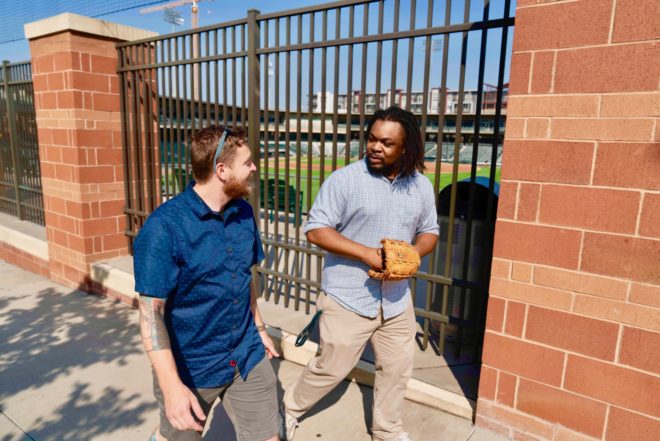
At Providence Eye & Laser Specialists, we understand that undergoing PRK surgery is a significant decision. While the procedure offers life-changing benefits, understanding the PRK recovery time is key to a successful outcome. Whether you're considering PRK or have already scheduled your procedure, this guide will help you feel informed and prepared for your recovery journey.
Photorefractive keratectomy (PRK) is a laser vision correction procedure that is well known for correcting myopia, hyperopia and astigmatism. PRK was FDA-approved in 1995 and is still widely performed today throughout the United States. Although PRK is the predecessor to LASIK, we still recommend it for about 25% of our patients instead of LASIK. PRK is sometimes called “No Flap LASIK,” as PRK does not entail creating a flap on the cornea.
The fundamental difference between LASIK and PRK is how the corneal tissue that needs to be reshaped in order to correct vision is accessed. With PRK, there is no flap. Instead, the surgeon uses a small surgical “brush” to gently remove the top epithelial, or skin layer, of the cornea. Then, the underlying corneal tissue is reshaped with the same laser used during LASIK. At Providence Eye & Laser Specialists, we use the Wavelight EX500 laser.
During LASIK, the flap acts like a band-aid. However, since there is no flap involved with PRK, the surgeon instead places clear, zero-prescription Band-Aid-like contact lenses on the patient’s eyes. The contacts are worn 24/7 while the epithelial skin layer regenerates under them. PRK patients return to Providence Eye five days after the procedure to have the contact lenses removed.
Similar to LASIK, PRK offers the long-term benefit of enhanced vision, allowing individuals to gain independence from glasses and/or contacts. Patients often report benefits in their daily activities, from reading the clock in the morning to driving without glasses or contacts. Additionally, they often find newfound freedom in their recreational activities, such as swimming, skiing, traveling and exercising. Imagine the freedom!
Here at Providence Eye & Laser Specialists, PRK surgery is performed in our laser suite, and both eyes are done on the same day. The procedure itself takes about 10-15 minutes for both eyes, but you will be in our office for a total of about one hour. Upon arrival, we will double-check all the information gathered during your consultation. You will then receive a light sedative to keep you comfortable and “take the edge off.” Numbing drops will also be instilled into your eyes, taking away the sensation of pain and the urge to blink. You will then be assisted to the bed with your head comfortably positioned under the laser. Your PRK surgeon, Dr. Trey Nunnery, will communicate with you throughout the procedure, keeping you aware of what is happening as a kind of “verbal anesthesia.” Upon completion of both eyes, you will then be ready to return home with the assistance of a driver.
Most PRK patients see some immediate improvement in their vision while still in the laser suite. Since you are not allowed to drive after the procedure, it’s important to pre-arrange for someone to drive you home. Clear plastic shields will be taped over your eyes to protect them and prevent rubbing. You will need to leave these shields on until the next morning, except to instill eye drops. The next morning, you can replace them with your own sunglasses or those provided in your post-operative kit. Once home, you will need to take a nice long nap for about four hours. All PRK patients are required to return to our office the day after their procedure for their first post-operative check. The appointment takes about 15 minutes, and you will need a driver to and from.
PRK recovery time requires patience. We recommend that you clear your calendar for a long weekend of relaxing and allow your eyes to heal. By day two, you may experience an increase in discomfort and a decrease in your quality of vision as compared to day one. This is normal and expected. Your eyes will likely be red, and your eyelids may even be a little swollen. At Providence Eye & Laser, we provide all of our PRK patients with:
Your vision will fluctuate from day to day and from morning to afternoon. Although this can be frustrating, it is normal and expected. Each week, your vision should improve. It may take six to 12 weeks (about three months) before your vision is at its best. It is tempting to compare your recovery time to others; however, we discourage this. Every person experiences different levels of discomfort and durations for their full PRK recovery time.
Lindsay Hart shares her experience with PRK surgery and the recovery time.
Dr. Ryan Matthews explains how PRK simplified his life and allowed him to continue providing excellent care for his patients.
We know the prospect of being free of glasses and contacts can be so exciting! However, it’s important to remember that every individual is unique. At Providence Eye, our surgeon, Dr. Nunnery, prioritizes your safety and optimal outcome above all else. If your surgeon feels that PRK is more appropriate in your situation, have trust in their recommendation. Although the PRK recovery time is a little longer and requires more patience, the end result is the same as LASIK.
Schedule a free consultation with Dr. Nunnery to see which vision correction procedure is right for you.